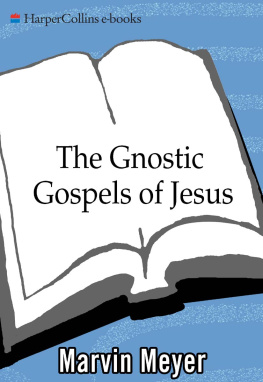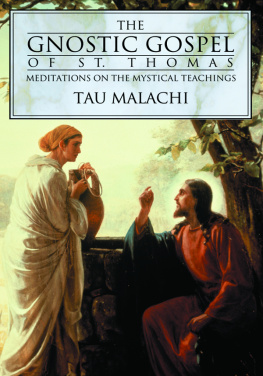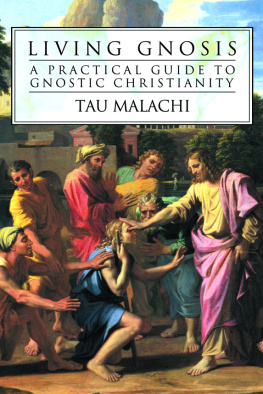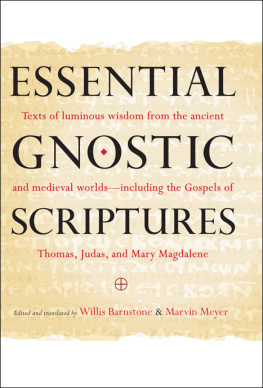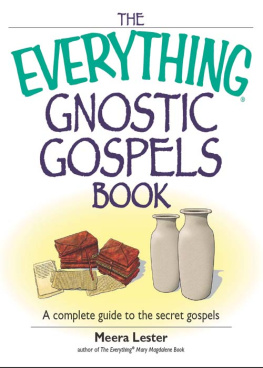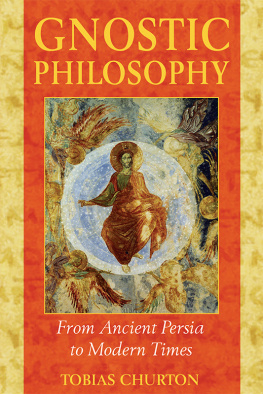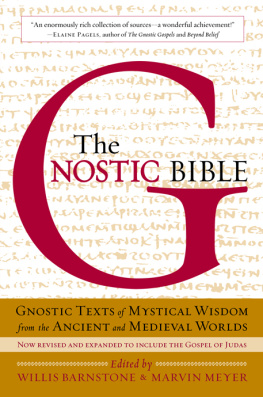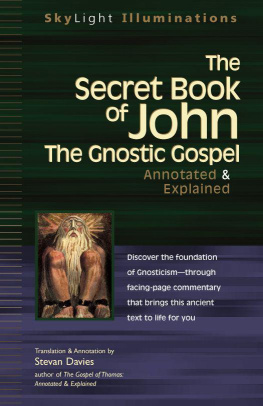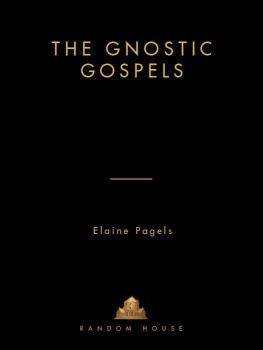THE
GNSTIC
FAUSTUS
THE SECRET TEACHINGS
BEHIND THE CLASSIC TEXT
RAMONA FRADON

Inner Traditions
Rochester, Vermont
In memory of Miss Elizabeth Clever,
a gifted teacher who saw light
where there seemed to be only darkness
A NAASSENE PSALM
The soul... is worn away in deaths slavery,
Now she has mastery and glimpses light:
Now she is plunged in misery and weeps.
Now she is mourned and herself rejoices.
Now she weeps and is finally condemned.
Now she is condemned and finally dies.
And now she even reaches the point where
Hemmed in by evil, she knows no way out.
Misled, she has entered a labyrinth.
Then Jesus said: Behold Father,
She wanders the earth pursued by evil.
Far from thy breath she is going astray.
She is trying to flee the bitter Chaos,
And does not know how she is to escape.
Send me forth, O Father, therefore, and I,
Bearing the seal shall descend and wander
All Aeons through, all mysteries reveal.
I shall manifest the forms of the gods
And teach the secrets of the holy
Which I call Gnosis.
INTRODUCTION
SETTING THE STAGE

I n the sixteenth century Germany began a long and difficult political, religious, and intellectual transformation, sparked by Martin Luthers challenge to the Catholic Church and the spread of knowledge made possible by the new printing press. But even as Germany evolved and took on aspects of a modern state, the people held fast to their old superstitions, not the least of which was belief in the Devil and the terrible power of his magic.
God-fearing Germans, whether Protestant or Catholic, kept a wary eye out for signs of his presence and many thought they detected them in the practices of the mysterious Hermetic magi, men who strove to manipulate nature with magic and the esoteric arts. The magi sought miraculous powers through alchemy, Egyptian mathematics and cabala, the mystical Jewish science of the inner planes, and pursued forbidden knowledge with the help of angels or demons. They aimed to transform matter with the power of their minds and wills, and, in an age of unbounded hubris, some of them even aspired to be gods.
The Germans thought their magic was diabolical, but many of these men were utopian visionaries who hoped to heal the deep divisions of society through a universal spiritual awakening. They associated with the radical Lutherans and the anti-papal Rosicrucians who were forming underground in the late sixteenth century. The confrontation of these movements with the forces of the threatened Church would soon plunge Germany and the continent into wars and religious persecutions that lasted throughout the following century.
Out of the stuff of this fraught and superstitious environment a modern myth was born. Its first manifestation was a crudely written manuscript called The Vita and Historia of Doctor Johannes Faustus, a story laden with mysterious symbols and filled with magical events. It appeared anonymously sometime around 1570 and began to circulate surreptitiously in central and southern Germany. A quaintly tragic little sorcerers tale concocted of German folk material and ancient religious lore, it preached the dogma of the Catholic Church but its content was clearly heretical. Doctor Faustus longed for knowledge forbidden by the Church and, in order to obtain it, made league with the Devil. He indulged in wine and women with the Devils connivance, acquired miraculous powers, consorted with a phantom goddess, and suffered a horrible end.
Although Faustuss punishment conformed to Catholic expectations, his extraclerical search for enlightenment was frowned on by the Church and the story was considered blasphemous. The scandalous little tale found a ready audience among the German people, however, and it grew in popularity, passing from hand to hand. As time went by it was embellished or adapted into peasant plays and puppet farces that made their way across Europe, wherever Roman rule was being challenged.
Some twenty years after its appearance, a version of the story came to the attention of the English playwright, Christopher Marlowe, and inspired him to write his own Dr. Faustus. A rebellious scholar himself who had abandoned church and university, Marlowe lent the tragic theme an intensity and sheen that transformed the crude original work. He amplified the sense of doom that weighed on Faustuss soul and raised his fatal longing to a level that approached the sublime. With this first great adaptation, the European Faust tradition was born.
In the centuries that followed, a steady stream of dramatic, literary, and musical interpretationcrowned by Goethes towering Faustadapted the theme to the values of succeeding ages and shaped it into a modern myth whose restless, ever-striving hero is thought to typify the soul of Western man.
Ironically, this remarkably germinal little tale, which has come to be known as the Faust Book, is assumed to have been written lightheartedly and simply for entertainment. Some opinion suggests that a Protestant or Humanist scholar may have written it in an effort to appeal to or profit from an impious interest that was absorbing the German people at the time. For a generation prior to the Faust Books appearance, popular attention had been focused on the scandalous doings of one Georg Faustus, a soothsayer, necromancer, and physician of sorts from a central German town, who had died in 1550. The mysterious circumstances of his life and death had become a local legend, gathering many a superstitious folk tale as it spread, and it is thought that the Faust Book, posing as the life of this scoundrel and including a number of such tales in its plot, was engineered to amuse a ready audience.
Borrowings from other material have also been detected in the Faust Book. Scholars have long noted its resemblance to the New Testament Synoptic Gospels. These sketchy accounts of a doomed and wandering miracle worker follow the same crooked path as the Faust Book does and share its chronological disarray and lack of cause and effect. The source for Faustuss mistress, Helen, has been traced back to a legendary companion of Simon Magus, a first-century Gnostic. Gnostic is a broad term that encompasses a variety of practices and religious beliefs that were common in the few centuries immediately before and after the birth of Christ. Gnostic comes from the Greek word for knowledge, gnosis, and refers to the idea that there is special, hidden knowledge that only the initiated may possess. This knowledge is, ultimately, an individuals direct experience of the God that lies within. Simon Magus, called the father of the Gnostics, claimed that he was Christ and was vilified by Christian writers. Simons Helen was a reformed prostitute whose checkered history mirrored the myth of Sophia, the fallen and repentant Gnostic goddess of wisdom. Sophia was known as the whore in her fallen state and Faustuss enchanting mistress, Helen, was also a lady of doubtful reputation.
The name Faustus, meaning favored one in Latin, was used by and it is interesting to note that Georg Faustus called himself the second Magus or the younger Faustus. E. M. Butler matched key features of the Faust Book plot to essential elements of the Magus myth and uncovered another important borrowing. Faustuss story resembles those of outstanding figures of the genre, such as the first-century spiritual master, Apollonius of Tyana, and Jeanne dArc, both of whom suffered tragic and seemingly foreordained deaths.
Next page

